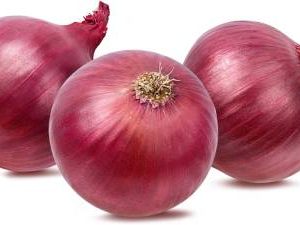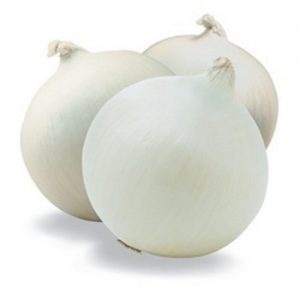Description
Carbs
One medium onion contains 10 grams of carbohydrates. Of these, 4.7 grams are sugar and 1.9 grams are fiber. Onions have a low glycemic index between 10–15.
Fats
On their own, onions contain minimal fat. Onions are often prepared with added fat, however, either sautéed in oil or butter, covered in salad dressing, or breaded and deep-fried.
Protein
Onions are not high-protein food with just a little over 1 gram of protein per serving.
Vitamins and Minerals
Onions provide vitamin C, folate, and manganese. Onions also contain some calcium and potassium.
Health Benefits
Onions contain numerous health-boosting phytochemicals to help ward off disease. Along with sulfur-based compounds, onions are rich in quercetin, a powerful antioxidant.
Fights Heart Disease
Onions contain powerful compounds, called allyl sulfides, that help prevent heart disease.3 The vitamin C in onions also acts as a powerful antioxidant that is beneficial for cardiovascular health. Finally, onions possess an impressive flavonoid, called quercetin, that reduces blood pressure and inflammation.4 All of these factors, combined with their natural fiber and potassium content, make onions a clear choice for anyone hoping to improve heart health.
May Prevent Cancer
The allyl sulfides in onions are also protective against cancer.3 Specifically, diallyl trisulfide is responsible for regulating several pathways associated with cancer development. These include arresting the cell cycle, preventing the migration of cancer cells, and inducing apoptosis (programmed cell death).












